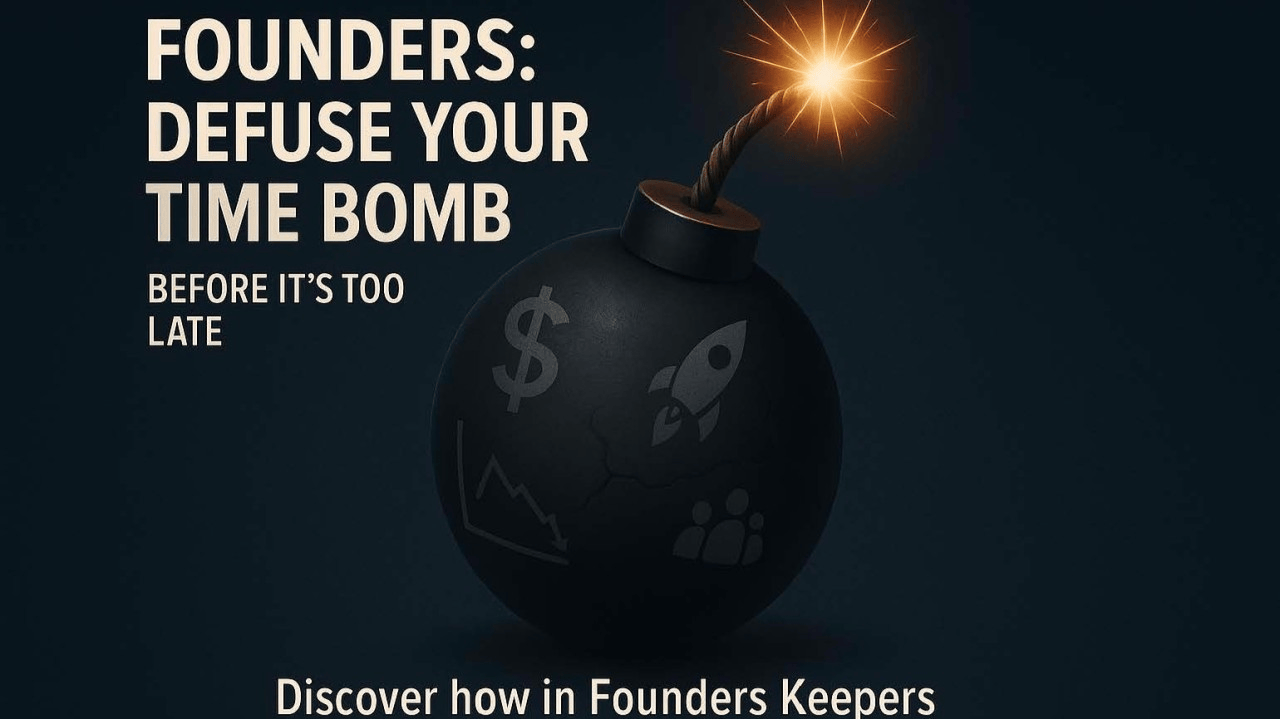Article
Book Preview! Why Most Startup Founders Are Destined to Fail—and How to Beat the Odds

Here's a provocative truth from my decades of coaching founders: most founders are ticking time bombs.
Visionary, bold, driven by relentless confidence—these traits build great startups. Yet, the very qualities that make founders extraordinary at launching a business can become catastrophic as the business grows. The stubborn genius who sparked the flame often can't keep the fire burning without burning everything down in the process.
In my new book, Founders Keepers, co-authored with Tien Tzuo, we reveal groundbreaking insights based on comprehensive research with 122 startup founders. We examined their personality traits, 360-degree leadership reviews, and financial outcomes—and the results were eye-opening.
1. The Myth of the Genius Jerk
The media often glamorizes abrasive, emotionally reactive founders as quintessential success stories. However, our comprehensive research clearly demonstrates that founders who exhibit traits such as empathy, diplomacy, adaptability, and emotional intelligence significantly outperform their abrasive counterparts. Being difficult isn't a path to success; it's a limitation that successful founders overcome despite, not because of, their personality.
2. Why Most Founders Can't Scale
Founders are generally gifted at envisioning innovative ideas and disrupting established norms. But these strengths often become glaring weaknesses when they must build scalable processes, delegate effectively, and implement operational rigor. Many founders resist relinquishing control, which inevitably leads to internal chaos, employee burnout, and organizational dysfunction, ultimately stifling growth.
3. Self-Awareness is a Superpower
Self-awareness is a critical but often overlooked skill in founders. Many leaders fail to recognize their own negative behaviors and how these behaviors impact their teams. Those who actively cultivate self-awareness, however, gain a powerful advantage—they become adept at adapting their leadership style to suit evolving business demands, enhancing their effectiveness and sustainability as leaders.
4. Conflict Avoidance is a Silent Killer
Ironically, despite being naturally assertive and risk-taking, many founders struggle profoundly with internal conflict. They frequently avoid or mishandle disputes, allowing unresolved issues to fester beneath the surface. This avoidance breeds mistrust, creates political factions, and undermines team cohesion, ultimately jeopardizing organizational health and stability.
5. Personality Predicts Performance
Our research revealed a direct correlation between a founder’s personality traits and their financial outcomes. Founders who demonstrate higher levels of emotional intelligence, flexibility, collaboration, and adaptability consistently achieve superior financial results. These traits were strongly predictive of achieving a tenfold return on investment (10x MOIC), while founders lacking these traits often struggled or failed outright.
6. Avoiding the Founder's Trap of Micromanagement
Many founders possess perfectionistic tendencies and high standards. While these traits can drive early success, unchecked they can lead to chronic micromanagement. Founders who micromanage inadvertently stifle their teams’ creativity, growth, and accountability. Successful founders recognize the value of trust and delegation, empowering their teams to thrive independently.
7. Adaptability Trumps IQ
Raw intelligence alone does not ensure founder success. The market is continuously evolving, and founders who rigidly adhere to their original ideas often struggle to pivot when necessary. Adaptability, the willingness to respond flexibly to changing circumstances, consistently emerged as more crucial than raw intellectual capability. Successful founders embrace adaptability, continuously refining and recalibrating their strategies.
8. Relationship Builders are Undervalued but Essential
Many founders underestimate the power of relationship-building. Those who neglect interpersonal skills risk becoming isolated, losing the trust and loyalty of key team members. Conversely, founders who master relationship-building foster deep, genuine trust, retain critical talent, and motivate their teams to tackle challenging goals collectively.
9. Vision Without Execution is Hallucination
It’s easy for founders to generate compelling visions and innovative ideas. However, without the discipline of execution, these visions remain unattainable dreams. Execution involves setting clear priorities, maintaining focus, and systematically achieving tangible results. Successful founders understand that ideas alone won't drive growth—they must couple visionary thinking with rigorous, disciplined execution.
10. The Paradox of Founder Personality
Founders often embody paradoxical traits that create internal and organizational tensions. They can be visionary yet disorganized, persuasive yet poor listeners, commanding yet lacking in empathy. Managing these inherent contradictions is essential. Successful founders recognize their paradoxes and proactively manage them, balancing their visionary strengths with disciplined execution and empathetic leadership.
If you're a founder—or you invest in, work with, or advise founders—this book gives you the tools to recognize the warning signs early, defuse your leadership "time bomb," and transform from a ticking liability into an enduring asset.
Founders Keepers launches June 17th. Learn how to beat the odds—and become a keeper, not a casualty.
Ready to defuse your ticking time bomb? Pre-order now: Amazon | Barnes & Noble
share this
Related Articles
Related Articles





